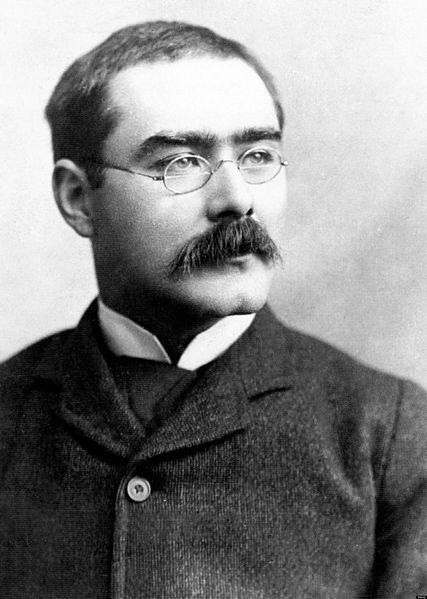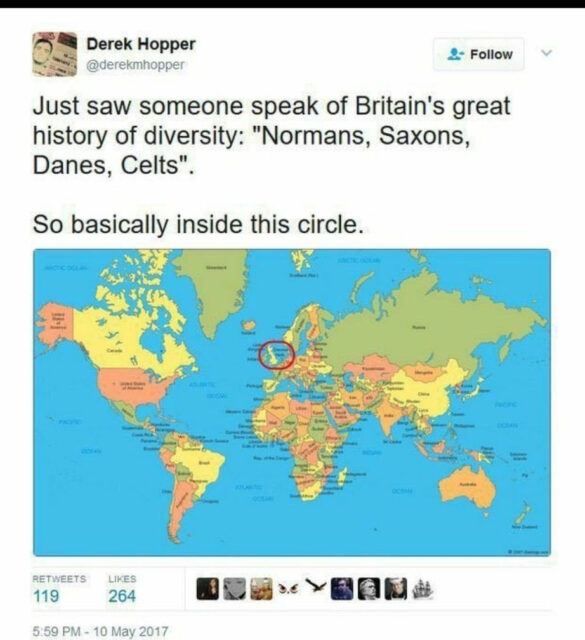Germany voted on Sunday (on paper, and the votes all got counted in less than 24 hours) and the most likely result will be a coalition between the centre-right CDU and the social democratic SPD, excluding the second-largest party, the extremely extreme extreme right-wing AfD:
The federal elections in Germany are over, and the preliminary count is in. The CDU/CSU have narrowly avoided the Kenyapocalypse, as the Bündnis Sahra Wagenknecht failed to meet the 5% hurdle for representation in the Bundestag by a mere 13,435 votes. In consequence, the Social Democrats and the Union parties together will command a thin but workable parliamentary majority of 328 seats. In all likelihood, we will have a black-red government under CDU Chancellor Friedrich Merz – a not-so-grand coalition of the kind we grew used to under Angela Merkel.
Here is a district-by-district map of the election results, with each district coloured according to the winning party. Black is CDU/CSU, blue is AfD, red is SPD and green is Green:
My district is the one all the way due south of Munich on the Austrian border. The CSU got 41.9% of the party vote here – one of their best showings in all of Bavaria.
The Losers
The preliminary results of each party compared to the last elections in 2021 reveal last night’s losers clearly enough:
This vote was as poignant a rejection of Olaf Scholz’s parodically bad traffic light coalition as anyone could imagine. Everybody has improved at the expense of red-green-yellow, but it is interesting to observe who has done the worst.
The Greens dominated the traffic light, and voters have dealt them the lightest punishment of all. Imagine how crazy you have to be ever to enter a government with this toxic party: They get their way on all major political issues and you get punished for it. Even so, the Greens did much worse than I thought they would. Almost everybody beyond their hardcore devotees has abandoned them, and Green Chancellor Candidate Robert Habeck (who also lost his direct mandate in Flensburg-Schleswig) has announced he will never again seek a leading role in the party. We have finally rid ourselves of his Majesty the Sun Chancellor, the champion of speech crime charges, and that alone is worth a stiff celebratory scotch.
The FDP lost far harder than the Greens. Last night was their worst showing of all time – worse even than the last time they were chased out of the Bundestag in 2013. Party chief Christian Lindner will resign and withdraw from politics, and he should. The FDP stood idly by and waved through ruinous Green policies like the building heating ordinances, all the time pleading that things would be even worse if the FDP weren’t in government. After the constitutional court in Karlsruhe killed the budgetary schemes of the traffic light, the FDP could have left the coalition, but they subjected all of us to another year of Scholzian incompetence and insanity. If there is any justice in the world the FDP will become a minor West German party that nobody thinks about anymore.
The next biggest loser of the night was the Social Democrats, who likewise booked their worst electoral result in history, and also achieved the worst-ever electoral collapse of a chancellor party in the 80-year history of the Federal Republic. Olaf Scholz has said he will not participate in any future government or coalition negotiations, and party co-chair Lars Klingbeil spoke last night of a “caesura” in the history of the SPD, promising substantial changes in party leadership. The first such change happened almost immediately, with the resignation of SPD faction leader Rolf Mützenich. Klingbeil will replace him. Many expect that Klingbeil’s co-chair, Saskia Esken, will also be forced out before long, although she is clinging to her job for the moment.
Looking from the US, CDR Salamander notes the very high turnout for a federal election with approval:
Sunday, Germany held national elections for the parliament, the Bundestag. Congrats to the German people and their ~83% turnout, the greatest I believe, since unification.
The previous government led by SPD and hobbled the the Greens was unstable at best, and was not doing great things for the German people. That would be why the SPD’s results were the worst since 1887.
Defense Minister Boris Pistorius has clear words for the performance of his SPD. “This is a devastating, catastrophic result,” he said. “There is no way to sugarcoat it.” He congratulated the Union on its election victory. “I hope that — especially in view of Friedrich Merz’s speech in Munich yesterday — they will now strike the right tone and understand that it is about keeping the democrats together and not playing them off against each other.” An AfD at 20 percent cannot leave the Social Democrats in particular at rest.
Nuff said.
The above numbers were from Sunday night and are not final, but we can safely assume that they are roughly where the final count will be.
You need 316 seats to control, and you need 5% to enter government. That last bit puts FDP and BSW out of the picture. I’ll chat a bit about that at the bottom of the post, but let’s focus on the big boys.
First things first, Germany voted for right-wing governance. CDU/CSU (Union), and AfD got 49.2% of the vote. However, no one will form a government with them, so the Germans will not be getting what they voted for.
[…]
AfD broke into the former West Germany. Both Kaiserslautern and Gelsenkirchen voted for AfD. I also find it interesting that in addition to the West Germany/East Germany divide, the East Berlin/West Berlin divide is still there.
History is sticky.
I lived with Germans for four years, yet I don’t fully grasp German politics. Still, some political constants hold true everywhere.
Again, the Germans voted for a right-wing government. With Union having to partner with SPD, that will pull the center of the government to the left, further away of the center of the electorate … again.
Were I a German, I would want a few things, in this order:
- Cheaper energy — lower monthly bills and prices across the board. It will also make German manufacturing more competitive. Yes, the only way to do that is to restart the nuclear power plants. With the Greens gone, no reason not to.
- Stop migration. Expel illegal migrants. If someone has vacationed in the nation they claimed to seek asylum from, deport them. Etc.
- Be a player in ending the war in Ukraine, if it can be ended. If Russia refuses to be reasonable at the table, then fully back the Ukrainian fight. As this is aligned with the general direction of the USA and other allies, it makes sense.
- Redouble spending on national defense. 2% will not do. 2.5% is the floor, and must be reached faster.
All the four above will be more difficult with SPD in government. Remember my long-held position that applies everywhere, not just in Germany:
When the center-right and center-left refuse to address the legitimate concerns of the people, especially in issues of migration and culture, then the people will look elsewhere for their concerns to be met.
If AfD were brought into government, they would be forced to moderate and to be held accountable for the action of government. With AfD in opposition — with a bone in their teeth — they will most likely, if they do not implode due to their well-known “personnel challenges”, they will increase their popularity with voters.
























